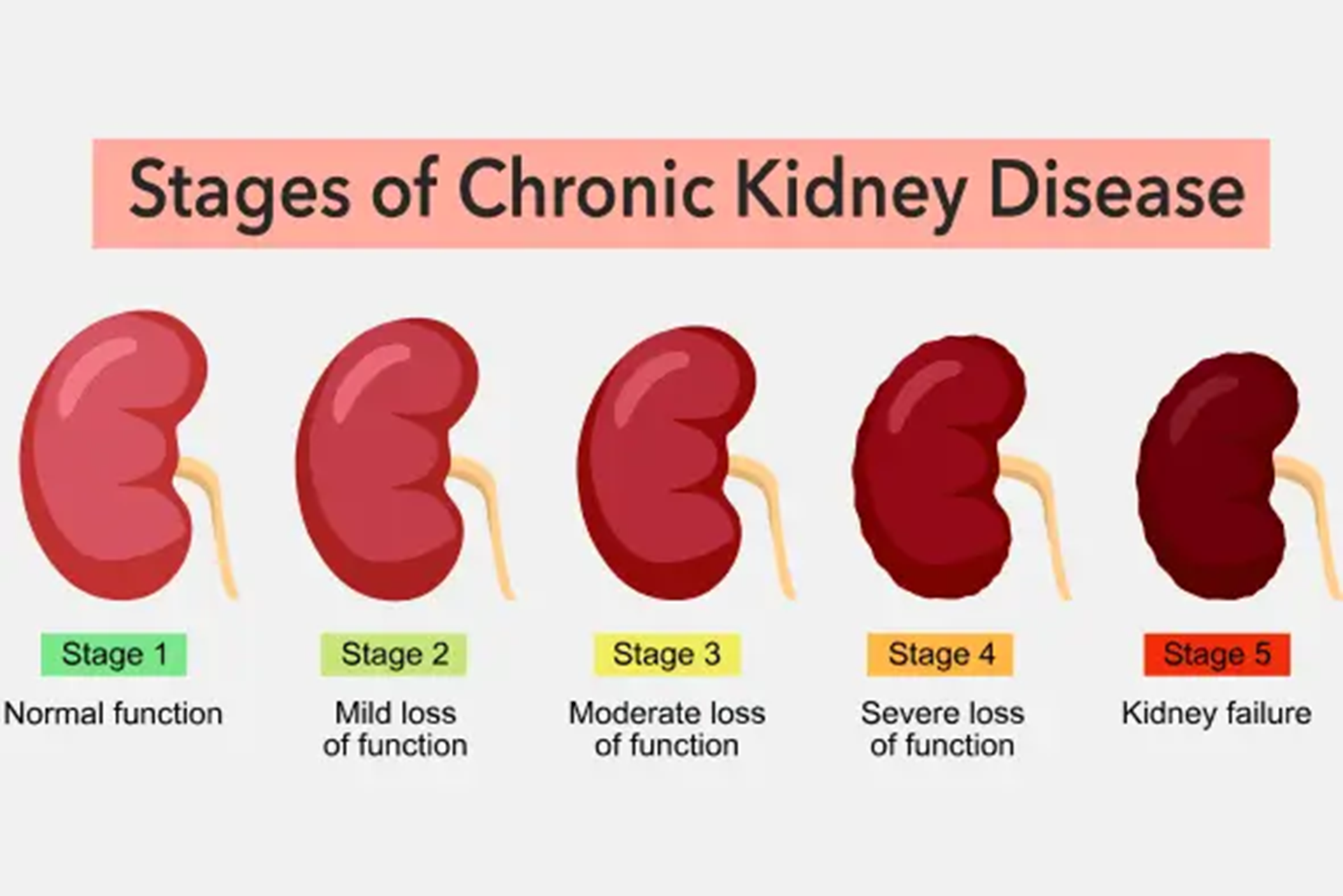
Overview:
Chronic Kidney Disease (CKD) is a progressive condition in which the kidneys gradually lose their ability to filter waste and excess fluids from the blood. If left untreated, CKD can lead to kidney failure, requiring dialysis or a kidney transplant.
Causes:
CKD is commonly caused by conditions like diabetes, hypertension, recurrent kidney infections, glomerulonephritis, or polycystic kidney disease. Long-term use of certain medications and genetic factors may also contribute to kidney damage.
Symptoms:
Early stages of CKD may not show noticeable symptoms. As the disease progresses, symptoms include fatigue, swelling in the legs and face, frequent urination (especially at night), nausea, loss of appetite, muscle cramps, and high blood pressure.
Treatment:
CKD treatment focuses on slowing progression and managing symptoms. This includes controlling underlying conditions like diabetes and hypertension, dietary modifications, fluid restriction, and medications to reduce blood pressure and prevent complications. In advanced stages, dialysis or kidney transplantation may be necessary.
Precautions:
Patients should monitor blood pressure and blood sugar levels, limit salt and protein intake, stay hydrated, and avoid nephrotoxic drugs (such as NSAIDs) without medical supervision.
Prevention:
Maintaining a healthy lifestyle, including a balanced diet, regular exercise, and routine kidney function tests, can help prevent CKD or slow its progression.
For expert CKD care, visit KDM Hospital in Lucknow, offering ambulance services, budget-friendly care, Ayushman card acceptance, and 24/7 doctor availability.
